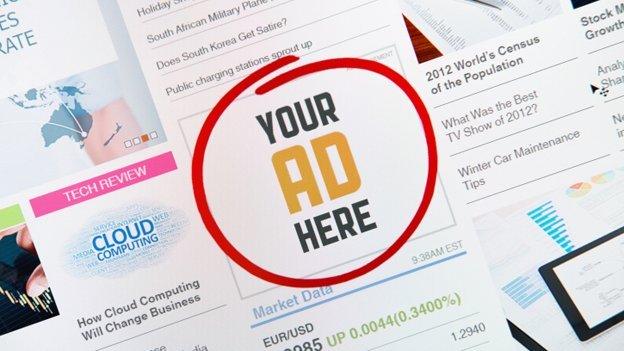AdBlock Plus defeats German publishers in court
- Published
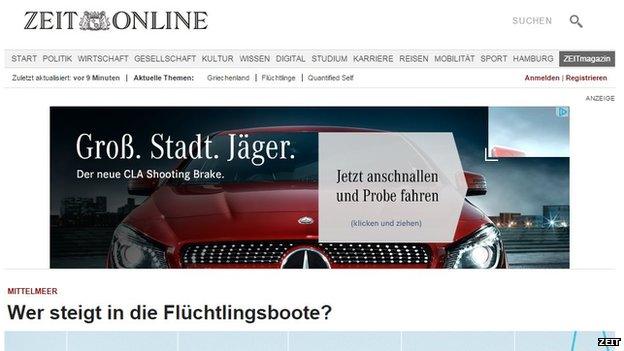
The German publishers challenged AdBlock Plus's right to suppress ads on their web pages
The creator of software that stops adverts from appearing on websites has defeated two news publishers that want to prevent its tech being used on their pages.
The owners of Germany's Die Zeit and Handelsblatt had claimed that AdBlock Plus's product was anti-competitive and threatened their ability to make money.
But a court in Hamburg ruled that users do have the right to use the plug-in.
The judgement has implications for other disputes involving the tool.
"The Hamburg court decision is an important one because it sets a precedent that may help us avoid additional lawsuits and expenses defending what we feel is an obvious consumer right: giving people the ability to control their own screens by letting them block annoying ads and protect their privacy," wrote AdBlock Plus's project manager, Ben Williams, on its blog, external.
"Now that the legalities are out of the way, we want to reach out to other publishers and advertisers and content creators and encourage them to work with Adblock Plus rather than against us."
However, the publishers have indicated that they intend to fight on.
"We are still convinced that AdBlock Plus is an illegal and anti-competitive practice," they said in a joint statement.
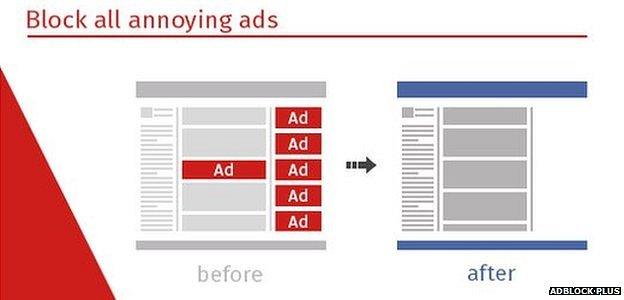
AdBlock Plus offers its service as a free plug-in for popular web browsers
"It infringes the freedom of the press. Therefore, we will await the written reasons for the judgment, analyse them and examine the prospects of an appeals procedure."
AdBlock Plus - which is owned by the Cologne-based firm Eyeo - faces three separate but related cases involving the media groups, ProSiebenSat.1, RTL Interactive and Axel Springer.
White list
The recent court case had contested the legality of AdBlock Plus's software suppressing adverts from the pages of the Zeit Online, Handelsblatt and Wirtschafts Woche news sites.
Their publishers had sought damages, but said their motivation was to challenge the software provider's wider business model.
"We are, of course, questioning the offer [of] Adblock Plus in general," Ebba Schroder, a spokeswoman for Zeitverlag Gerd Bucerius told the BBC.
While AdBlock Plus offers its web browser add-on to the public for free, it makes money by operating a "white list" of adverts that it allows to get through its filters.
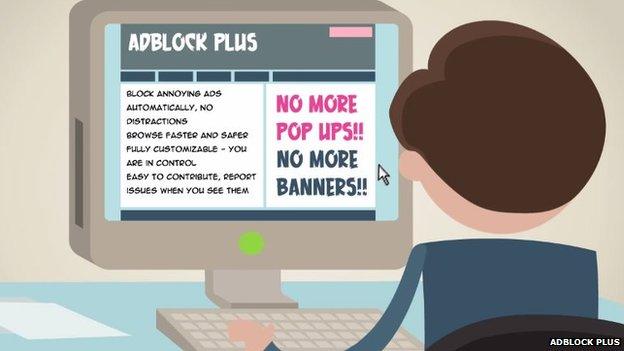
AdBlock says more than 350 publishers and other organisations are on its "white list"
Such ads must meet certain criteria, external, for instance they must not include animations or sounds and cannot be pop-ups that cover other content.
Website operators that want ads on their site added to the white list must seek permission.
Although AdBlock Plus states that "no one can buy their way onto the white list", it does charge fees for what it terms "support services", the details of which are not made public.
In February, the Financial Times reported that one unnamed media company, external had said it had been asked to pass on the equivalent of 30% of the extra revenues it would have made by having ads on its platform unblocked.
That has led some critics to claim that the Eyeo is engaged in, external a "racket".
But the firm insists that term is "imprecise and wrong".
It highlights that its service has proved popular with many users, with AdBlock Plus having been downloaded nearly 400 million times.
It also notes that it does not charge fees to smaller businesses and blogs, and allows users to block its white-listed ads if desired.
"If we are racketeers we are terrible racketeers because 90% of the people on the white list don't pay anything and the criteria is the same for everyone," Mr Williams told the BBC.
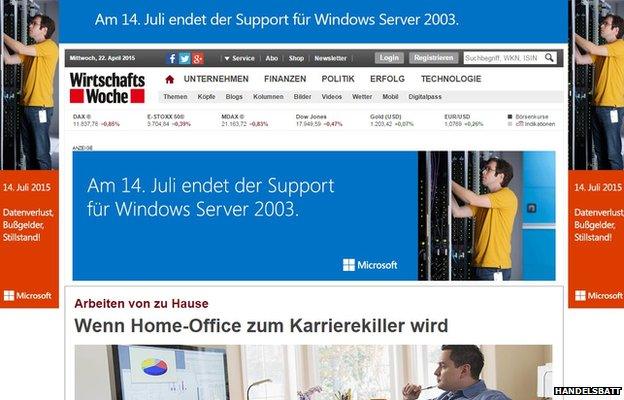
Handelsbatt says AdBlock Plus's suppression of ads on its sites should not be permitted
"[The ruling] is living proof of the unalienable right of every user to enjoy online self-determination."
However, one lawyer, who is not involved in the German cases, noted that other European courts might not necessarily take the same view.
"The Hamburg court based its decision on the provisions of EU Law... other national courts in EU member states must do likewise, but are not bound to reach the same legal conclusions," said Paul Henty from the law firm Charles Russell Speechlys.
"There could also be different factual or economic circumstances in those jurisdictions which lead to a different result.
"Nonetheless, the Hamburg judgment may be persuasive as an authority and will certainly be a boon to Eyeo in similar AdBlock disputes."
- Published8 April 2015

- Published23 February 2015
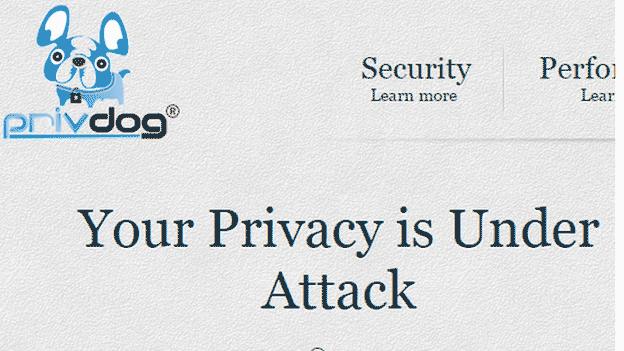
- Published5 December 2013
